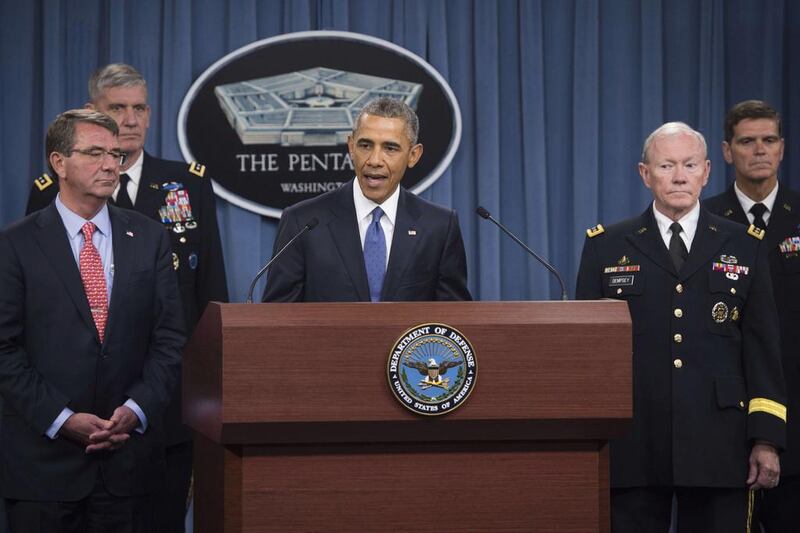Many of ISIL’s extremists found their way to the group online. In some cases, they were “self-radicalised”, which means these individuals read extremist literature, frequented forums that discussed hate, watched videos that offered guidance on violent solutions and became convinced they should follow ISIL’s path. In other cases, however, they were radicalised by people they knew, or thought they knew – either people they met online or in the real world.
In all cases, however, one point stands out: the vast resources that extremist groups such as ISIL are pouring into the recruitment process. Whether putting out slick videos and sermons or dealing one-to-one on social media and effectively grooming young men and women for terrorism, there is a level of effort and engagement that outstrips anything offered by those battling extremist ideas.
In that lies the problem and the reasoning behind Abu Dhabi’s new counter-terrorism Sawab Centre. Military might is not enough to defeat jihadism. It may destroy ISIL – although it has noticeably failed to destroy Al Qaeda – but there are other terror groups. Jihadism is a battle of ideas and both the Arab world and the West has been very late to that battle.
Sawab aims to change that. By combating the messages that ISIL puts out, it hopes to give those potentially seduced by extremism correct information. Credibility is essential to that message, which is why it is important that the centre is based here in the Middle East; the language, the history and the culture of the Arab world is a crucial element in gaining credibility with potential recruits. Few will be able to disseminate Islamic ideas as well as people from the region in which Islam was revealed.
It also matters that the centre is based in the UAE. Part of the appeal of ISIL is that it offers disenfranchised youth, either in the West or in the Arab world, an opportunity to do something that gives them a sense of purpose. The world of ISIL is a world in which a misfit can matter.
It is vital that a counterexample is offered – and the UAE provides it. A place where young Muslims can thrive and prosper in peace and security is a powerful narrative.
Of course, all of this will take time. The battle of ideas will be long. But extremists have been waging that battle for decades – the civilised world is only now beginning it properly.





